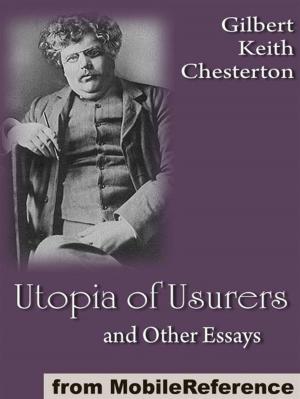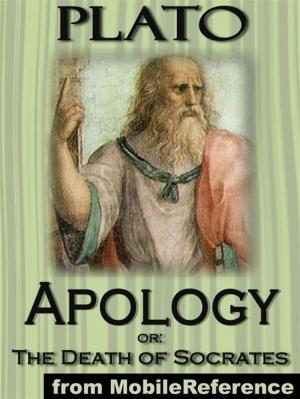The Ninety-Five Theses On The Power And Efficacy Of Indulgences (95 Theses) (Mobi Classics)
Nonfiction, Religion & Spirituality, Christianity, Denominations, Lutheran, Theology, Philosophy| Author: | Martin Luther | ISBN: | 9781607783602 |
| Publisher: | MobileReference | Publication: | January 1, 2010 |
| Imprint: | MobileReference | Language: | English |
| Author: | Martin Luther |
| ISBN: | 9781607783602 |
| Publisher: | MobileReference |
| Publication: | January 1, 2010 |
| Imprint: | MobileReference |
| Language: | English |
The Ninety-Five Theses on the Power and Efficacy of Indulgences, commonly known as The Ninety-Five Theses, were written by Martin Luther in 1517 and are widely regarded as the primary catalyst for the Protestant Reformation. Luther used these theses to display his displeasure with some of the Church's clergy's abuses, most notably the sale of indulgences; this ultimately gave birth to Lutheranism. Luther's popularity encouraged others to share their doubts about the Church and to protest against its ways; it especially challenged the teachings of the Church on the nature of penance, the authority of the Pope and the usefulness of indulgences. They sparked a theological debate that would result in the Reformation and the birth of the various Lutheran, Reformed, and Anabaptist denominations within Christianity. Excerpted from Wikipedia, the free encyclopedia.
The Ninety-Five Theses on the Power and Efficacy of Indulgences, commonly known as The Ninety-Five Theses, were written by Martin Luther in 1517 and are widely regarded as the primary catalyst for the Protestant Reformation. Luther used these theses to display his displeasure with some of the Church's clergy's abuses, most notably the sale of indulgences; this ultimately gave birth to Lutheranism. Luther's popularity encouraged others to share their doubts about the Church and to protest against its ways; it especially challenged the teachings of the Church on the nature of penance, the authority of the Pope and the usefulness of indulgences. They sparked a theological debate that would result in the Reformation and the birth of the various Lutheran, Reformed, and Anabaptist denominations within Christianity. Excerpted from Wikipedia, the free encyclopedia.















